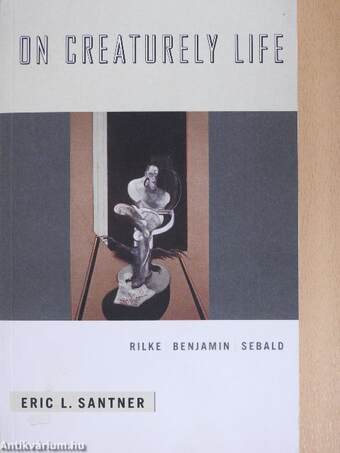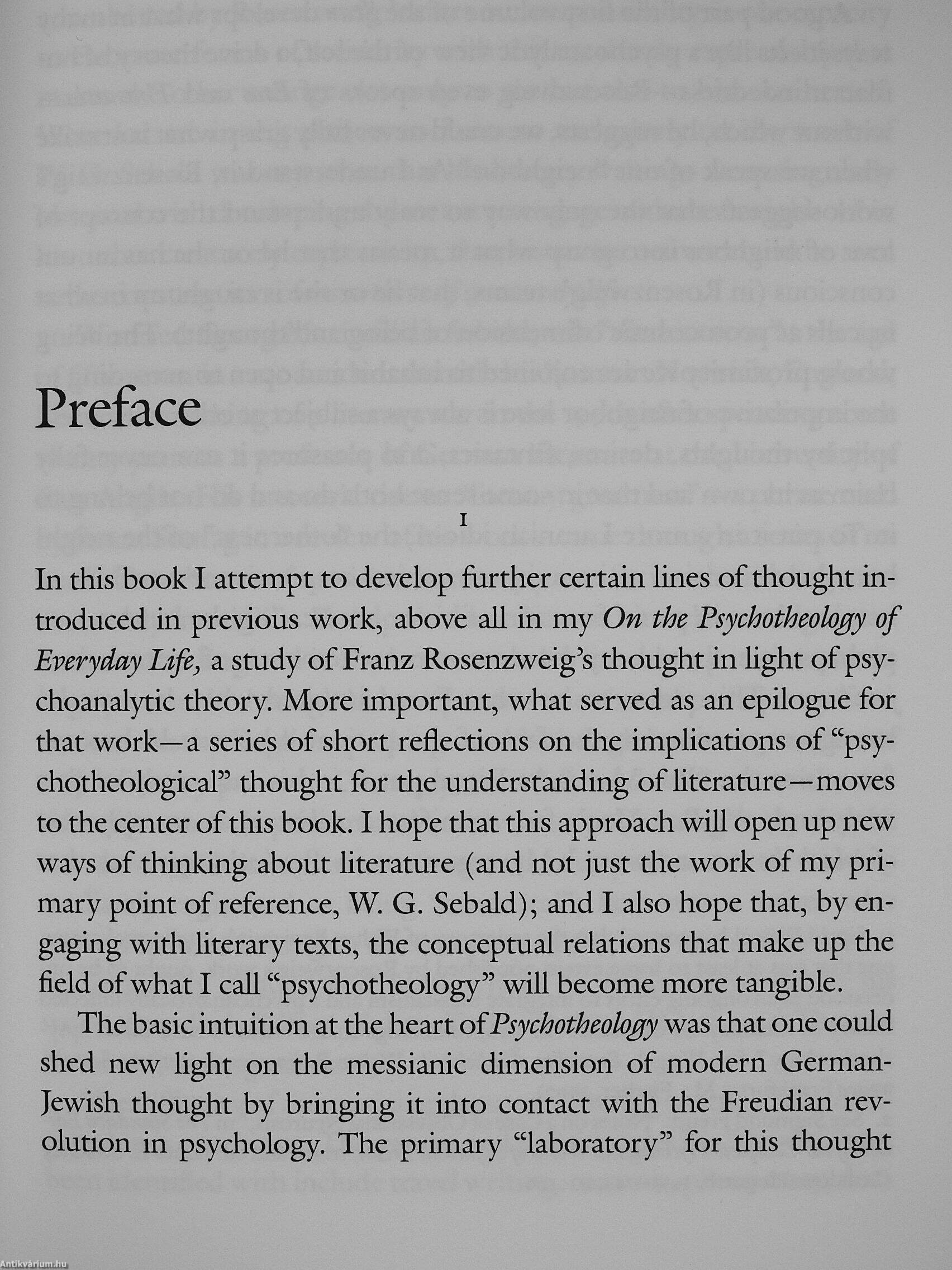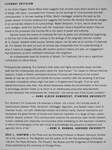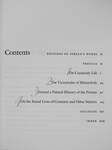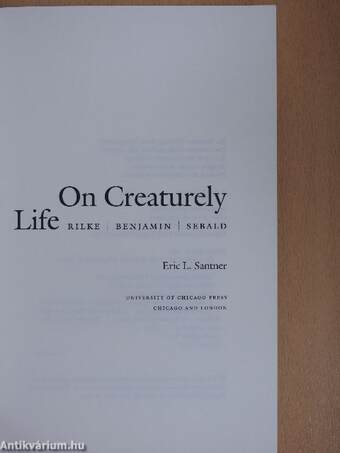1.119.442
kiadvánnyal nyújtjuk Magyarország legnagyobb antikvár könyv-kínálatát
On Creaturely Life
Rilke/Benjamin/Sebald
| Kiadó: | University of Chicago Press |
|---|---|
| Kiadás helye: | Chicago-London |
| Kiadás éve: | |
| Kötés típusa: | Ragasztott papírkötés |
| Oldalszám: | 219 oldal |
| Sorozatcím: | |
| Kötetszám: | |
| Nyelv: | Angol |
| Méret: | 21 cm x 14 cm |
| ISBN: | 0-226-73503-6 |
naponta értesítjük a beérkező friss
kiadványokról
naponta értesítjük a beérkező friss
kiadványokról
Előszó
TovábbFülszöveg
LITERARY CRITICISM
In his Duino Elegies, Rainer Maria Rilke suggests that animals enjoy direct access to a realm of being—the open—concealed from humans by the workings of consciousness and self-consciousness. In his own reading of Rilke, Martin Heidegger reclaims the open as the proper domain of human existence but suggests that human life remains haunted by vestiges of an animal-like relation to its surroundings. Walter Benjamin, in turn, was to show that such vestiges—what Eric Santner calls the creafure/y—have a biopolitical aspect: they are linked to the processes that inscribe life in the realm of power and authority.
Santner traces this theme of creaturely life from its poetic and philosophical beginnings in the first half of the twentieth century to the writings of the enigmatic German novelist W. G. Sebald. Sebald's entire oeuvre, Santner argues, can be seen as an archive of creaturely life. For Sebald, the work on such an archive was inseparable from his understanding... Tovább
Fülszöveg
LITERARY CRITICISM
In his Duino Elegies, Rainer Maria Rilke suggests that animals enjoy direct access to a realm of being—the open—concealed from humans by the workings of consciousness and self-consciousness. In his own reading of Rilke, Martin Heidegger reclaims the open as the proper domain of human existence but suggests that human life remains haunted by vestiges of an animal-like relation to its surroundings. Walter Benjamin, in turn, was to show that such vestiges—what Eric Santner calls the creafure/y—have a biopolitical aspect: they are linked to the processes that inscribe life in the realm of power and authority.
Santner traces this theme of creaturely life from its poetic and philosophical beginnings in the first half of the twentieth century to the writings of the enigmatic German novelist W. G. Sebald. Sebald's entire oeuvre, Santner argues, can be seen as an archive of creaturely life. For Sebald, the work on such an archive was inseparable from his understanding of what it means to engage ethically with another person's history and pain, an engagement that transforms us from indifferent individuals into neighbors.
An indispensable book for students of Sebald, On Creaturely Life is also a significant contribution to critical theory.
"Philosophically speaking, Eric Santner's both sober and highly provocative essay inscribes itself into the contemporary discussion about the 'post-human.' For, based on intense historical research, it adds a hitherto overlooked structure of human self-reference to the current debate on how we can think and handle the human condition after the vanishing of all those normative conceptions whose origin had been in Enlightenment thought. From an early twenty-first-century view, then, that almost obsessively relates the transformation of the human to technology, Santner invites us to return to an intellectually productive early-twentieth-century obsession that emphasized the 'creaturely'—the animal side of the human condition."
— HANS ULRICH GUMBRECHT, STANFORD UNIVERSITY
"Eric Santner's On Creaturely Life Aesexves a tribute, not a blurb. His intricate series of interlocutions between Rilke, Benjamin, Heidegger, Agamben, and Sebald make a kind of chamber music, rich with intellectual intuition and ethical clarity. Santner transforms and transposes the great themes of human and historical mediation in a range of keys—poetic, political, textual, juridical. This luminous work explores the precarious open border between human creativity and creaturely consciousness while meditating on the traumatic conditions in which the sovereignty of the self comes to acknowledge the presence of adjacent and agonistic forms of life." —HOMI K. BHABHA, HARVARD UNIVERSITY
ERIC L. SANTNER is the Philip and Ida Romberg Professor in Modern Germanic Studies. He is the coauthor of The Nelgfiborand the author of On the Psychotheology of Everyday Life and The Royal Remains: The People's Two Bodies and the Endgames of Sovereignty, all three published by the University of Chicago Press. Vissza
Témakörök
- Filozófia > Témaköre szerint > Esztétika (művészetfilozófia)
- Idegennyelv > Idegennyelvű könyvek > Angol > Művészetek > Művészettörténet, általános
- Idegennyelv > Idegennyelvű könyvek > Angol > Filozófia > Témaköre szerint > Esztétika (művészetfilozófia)
- Művészetek > Művészettörténet általános > Esztétika
- Művészetek > Művészettörténet általános > Idegen nyelv > Angol
- Filozófia > Témaköre szerint > Tanulmányok, esszék
- Filozófia > Témaköre szerint > Szakfilozófiák
- Idegennyelv > Idegennyelvű könyvek > Angol > Filozófia > Témaköre szerint > Tanulmányok, esszék
- Idegennyelv > Idegennyelvű könyvek > Angol > Filozófia > Témaköre szerint > Szakfilozófiák
Megvásárolható példányok
Nincs megvásárolható példány
A könyv összes megrendelhető példánya elfogyott. Ha kívánja, előjegyezheti a könyvet, és amint a könyv egy újabb példánya elérhető lesz, értesítjük.


